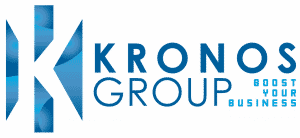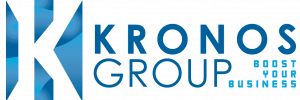Summary In the contemporary business environment, digital procurement is becoming increasingly popular and sought after by businesses around the world. The relationships …
The impact of digital procurement transformation on contemporary businesses
Understanding digital procurement transformation in contemporary businesses
Leveraging digital procurement tools and software will assist a business in managing its purchasing lifecycle, identifying and sourcing goods and services, negotiating smart contracts, settling payments, and using reporting analytics to gain insights.
Contemporary businesses are designed to adapt to the ever-changing business environment. Business conditions are always evolving, which requires businesses to pick up the pace and implement process simplification strategies to meet growing needs and levels of fierce competition.
What are the key elements of procurement transformation?
Procurement transformation requires a holistic approach that involves collaboration across the organisational hierarchy, the adoption of change management strategies, and a firm foot in the area of technological advancements.
Many perceive digital transformation as focusing only on the adoption of new tools and technologies to business processes, but it also considers strengthening the traditional procurement practices to unleash the full potential of digital solutions towards driving business growth and resilience.
The key elements of digital transformation are:

Technology integration
Adopt digital tools such as procurement software, cloud-based solutions, AI-driven analytics, and process automation for the automation of manual tasks, workflow streamlining, and improved decision-making processes.

Stakeholder collaboration
Foster stakeholder collaboration and connectivity with software integration. This facilitates two-way communication and transparency through online portals for bidding, negotiation, and contract management.

Data-driven insights
Gain insights into supplier performance, market trends, cost structures, and risk compliance management. These analytics can assist in forecasting demand, optimising inventory levels, and implementing strategic decisions.

Process optimisation
Redesign and elevate procurement processes for agility, flexibility, and accountability. Enhance the responsive nature of the business through digital workflows, e-procurement systems, and standardised processes.

Risk management
Prioritise centralisation and connectivity to nurture an environment where digital tools are equipped to assess, overlook, and mitigate risks like supply chain disruptions, market volatility and threats, and compliance issues.

Value generation
Achieve financial savings through process efficiencies, the development of proven-to-work negotiation strategies, and optimised workflows. All of these add value to each business stage and drive profitability schemes.
Why is digital transformation important?
91% of businesses are engaged in digital transformation initiatives, while 87% of business leaders have kept digitalisation as a top-tier priority.
Digital transformation is important because it allows businesses to:

Lower overheads

Increase efficiency

Gain a competitive edge

Promote data analytics

Optimise resource allocation

Better stakeholder management
Digital transformation is crucial for a business’s survival in today’s complex and volatile business landscape. Transformation scales across all levels of business and allows benefits to be reaped by all stakeholder groups.
Get assistance from Kronos Group to reap the benefits of digital transformation
Kronos Group’s expertise lies in providing consulting services for digital procurement transformation management which has been recognised across Europe and the world.
Our skills are spread over analysing, recommending, and assisting in the implementation of optimised strategies, processes, and technologies for businesses to achieve their procurement transformation goals.
Let us assist you in delving into digital transformation management to streamline operations and achieve set objectives. Get in touch with us today and assess your digital maturity for free and explore how we can collaborate to improve your business processes.

Fighting the effects of inflation with sourcing and procurement consultants
Stay up-to-date on the latest insights on procurement, finance, and project management.
Summary Strategic procurement has become a necessity in today’s business world and organisations try to remain competitive. Having the right procurement strategies …
Summary The world of consulting has been undergoing a massive transformation and management consulting jobs are experiencing the impacts of these changes. …
FAQ
Digital transformation is the implementation and application of technology for optimisation and automation of the procurement process, which aims to make processes faster, highly efficient, and more accurate.
A procurement transformation strategy is the development of a plan and framework that shapes the procurement function. This is a comprehensive approach taken towards evolving procurement operations, leveraging new technologies, optimising processes, and aligning business objectives.
The main mode of digitalising procurement systems is the implementation of technologies to simplify processes. Digitising procurement processes entails more than just the adoption of technology, like cultural and process shifts. Digitsing aims to drive efficiency, push transparency, encourage financial savings, and bring agility into procurement processes.













